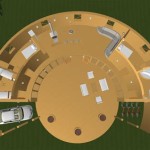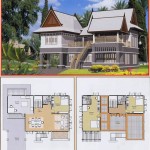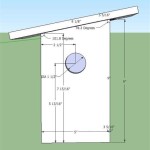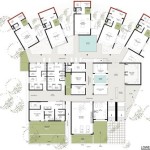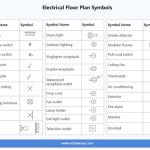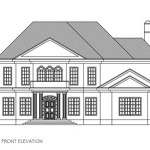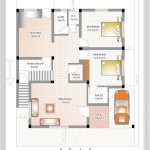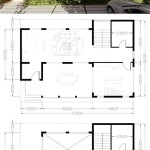Essential Aspects of House Elevation Plans Designs
House elevation plans portray the vertical dimensions and external appearance of a structure, including its facade, windows, doors, and overall shape. These plans are crucial in determining a home's aesthetics, functionality, and structural integrity. Here are some essential aspects to consider when designing house elevation plans:
Facade Design
The facade is the front-facing elevation of a house and serves as its primary visual representation. When designing the facade, consider the architectural style of the home, the surrounding environment, and the desired visual impact. Elements such as window placement, door design, and exterior materials play a significant role in shaping the overall aesthetic of the house.
Window and Door Placement
Windows and doors are essential for natural light, ventilation, and access to the exterior. Their placement should be carefully considered to optimize functionality and enhance the visual appeal of the house. Consider factors such as natural light patterns, privacy concerns, and the overall flow of the interior space.
Roof Design
The roof is a prominent architectural element that contributes to both the aesthetics and structural integrity of a house. There are various roof designs to choose from, including pitched roofs, flat roofs, and combination roofs. The choice of roof design should complement the architectural style of the house and provide adequate protection from the elements.
Exterior Materials
The exterior materials used in house elevation plans influence the durability, maintenance requirements, and overall appearance of the house. Common exterior materials include brick, stone, wood, siding, and stucco. Each material has its unique characteristics and should be carefully selected based on climate, aesthetic preferences, and budget.
Symmetry and Proportion
Symmetry and proportion are important principles of architectural design that can enhance the visual appeal of house elevation plans. Symmetrical facades convey a sense of balance and order, while asymmetrical designs can create dynamic and interesting visual effects. Proportion refers to the harmonious relationship between the different elements of the house, ensuring a visually balanced and pleasing composition.
Professional Assistance
Creating well-designed house elevation plans requires technical expertise and an understanding of architectural principles. It is highly recommended to seek professional assistance from licensed architects or home designers who can help navigate the design process and ensure that the plans meet building codes and regulations.
Conclusion
House elevation plans play a crucial role in determining the aesthetics, functionality, and structural integrity of a home. By carefully considering factors such as facade design, window and door placement, roof design, exterior materials, symmetry and proportion, and professional assistance, homeowners can create visually appealing and functional elevation plans that enhance the overall value and enjoyment of their homes.

Elevation Drawing Of A House Design With Detail Dimension In Autocad Small

Elevation Design Drawing Of House Building Plan

Redesigning The Front Of A House To Improve Curb Appeal

12 Normal House Front Elevation Designs With Renderings Brick Batten

Designing Elevations Life Of An Architect

Verago A Modern Mediterranean House Plan Sater Design Collection

Elevation Building House Plans Designs Structure Design 10 Marla Plan

Elevations Styles Home Elevation Design House

Home Plan Berkeley Square Sater Design Collection

Campden Traditional House Plans European

